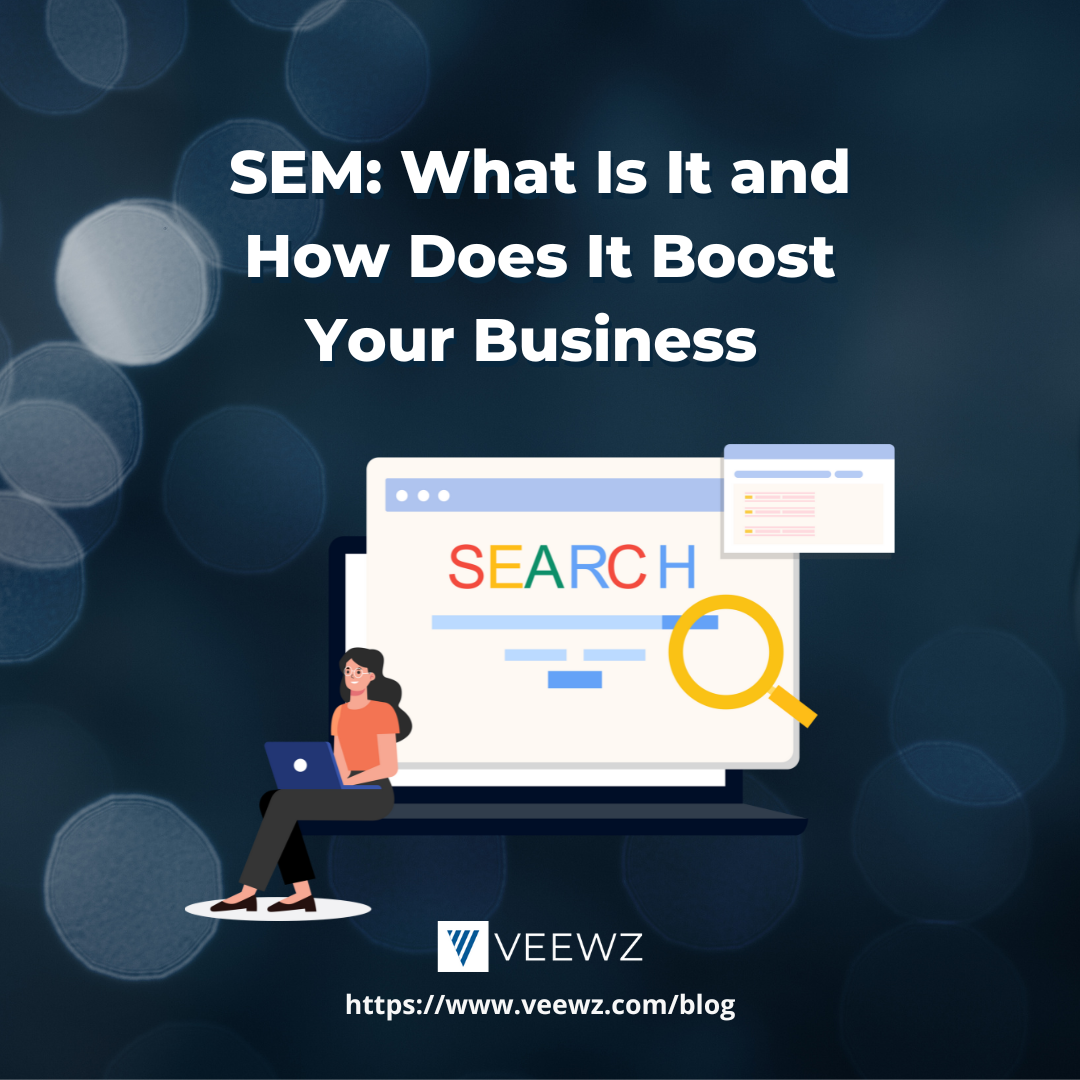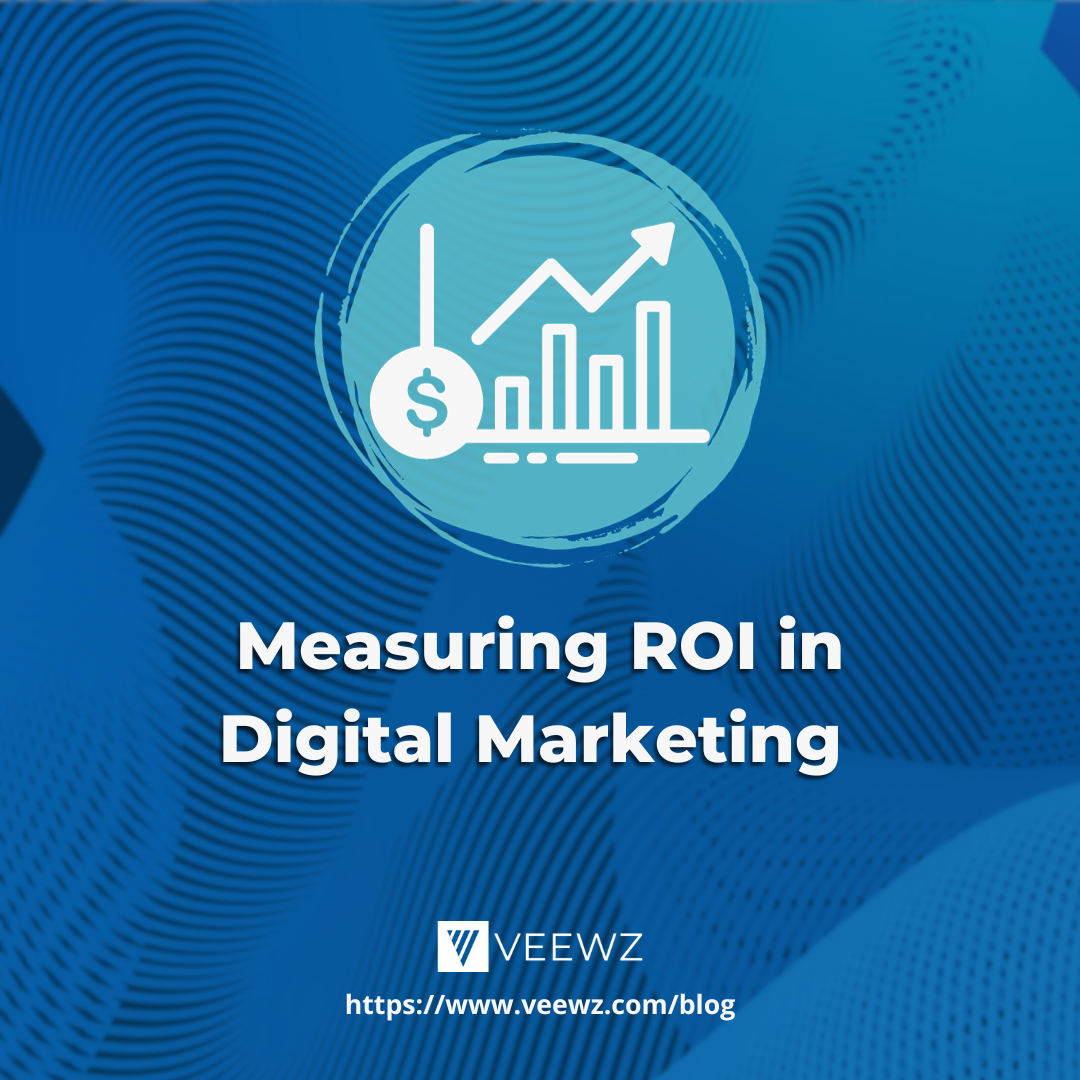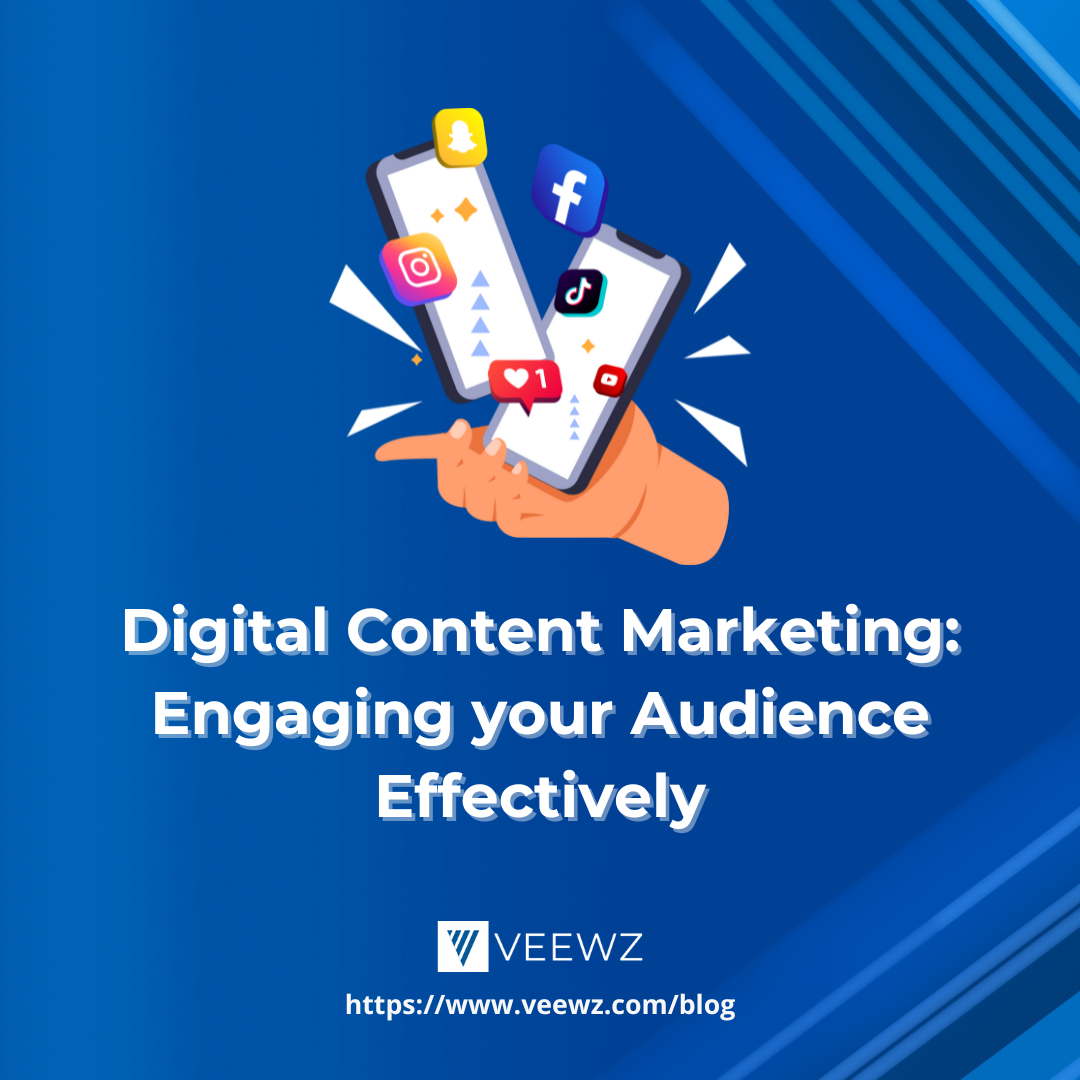
The Internet has significantly changed the world in the last decade. Thus, the way people are connecting has also changed. Today, social media is one of the most popular methods of communication. Everyone is linked through their screens in one way or another. Also, many people are using it for business and digital marketing purposes.
However, when you start dealing digitally, it is better to maintain a level of competence that reflects the brand you're trying to promote.
We are aware of how one can get lost in all the marketing jargon. That’s why we’re here with this simple digital marketing guide for small businesses.
What does Digital Marketing mean?
The simplest definition of digital marketing is advertising that’s delivered through digital channels. The goal of digital marketing is to find the right audience for your products or services. It also includes using the correct marketing strategy to reach that audience.
Why Digital Marketing?
With every passing day, thousands of people from around the world are joining the internet. Moreover - according to a survey - more than 80% of internet users prefer the online mode of shopping.
However, with so many big brands and their huge customer base, it can be daunting for smaller businesses to enter the market. Gaining the attention of people who are already loyal to other brands, can be difficult at times. Nevertheless, there is always a target market for each business that can be attracted through marketing.
This huge untapped user base is no less than a gold mine for small business owners. It gives them a chance to expand their business without any geographical constraints and generate a surprising amount of revenues.
In the present times, it is quite inconvenient for small business owners to target audiences with traditional marketing methods. Hence, many are turning to digital marketing.
What’s positive about digital marketing is the fact that you can reach a wider market without spending too much. And if done correctly, it can take your business to new heights in a matter of days.
In short, digital marketing is a supersonic missile that can fulfill your business objectives quickly and speed up business growth.
Small Businesses & Digital Marketing Strategies

Before jumping into the strategies, take a look at some of the important factors and objectives that affect your marketing strategies.
- Marketing goals
Building your marketing strategy starts with defining goals. Here are some of the goals your company might have:
- Looking to acquire new customers
- Oversee your company’s image
- Customer retention
- Increasing the average purchase amount per customer
- More traffic to the website
Setting a marketing goal lets you make a marketing plan that aligns with your resources and budget. These goals play a huge part in making a local marketing strategy that helps your business reach its goals and objectives.
- Customer and market insights
Another useful point is understanding your target customers. Here are some questions you might need to answer in order to understand the target market:
- What motivates them to look for a business such as yours?
- Where do they spend time online?
- Why would they choose your brand?
Insight into these kinds of traits rules the best ways to reach your customers. In addition to customer insights, marketing research is also important. One important aspect of market research is to learn your market dynamics, such as:
- Who are your competitors?
- What marketing strategies do they use?
- Which industry trends could change the way customers engage with your business?
To find answers, look for industry info online, call competitors, and survey your customers.
- ROI
Small businesses might be tight on budget and resources when it comes to marketing. Hence, a good marketing agency focuses on tactics that provide the best return on investment (ROI) for your marketing dollars.
To find out the best ROI for your business, you have to test different strategies. Additionally, you have to collect data and results to analyze if the strategy is worth it. This can help you improve your strategy or completely change it in case of less ROI.
Understand Conversions

One of the most commonly used terms in digital marketing is “conversions.” It is mostly used when it comes to enhancing engagement. For instance, taking a website visitor to an email list subscriber or any other conversion events including:
- purchases
- providing additional contact information
- event sign-ups
Conversion rates are checked to measure the success of online marketing campaigns. They can be checked for things like a website landing page, Yelp listing, or a Facebook Ad.
Typically, these rates are measured in a ratio of the audience to action takers. Let’s say you have a website landing page with 1,000 visitors per day. 100 of them sign up for your email list per day, resulting in a 10% conversion rate on that particular page.
Conversion rates will vary for different industries and platforms. You might find that one marketing approach “converts” better. Hence, it will eventually determine where you’ll focus your marketing efforts.
The 5 Ds of Digital Marketing

Digital marketing also involves consumer cooperation. This is why the 5 Ds of digital marketing were introduced. Each of them deals with different ways of how consumers communicate and interact with the brand. Moreover, these 5 Ds help develop better marketing strategies. They are:
- Digital devices - Digital services are not just limited to mobiles, laptops, and tablets. You also have to think of newer devices like smartwatches, and TVs, etc.
- Digital platforms - With different platforms available, choose the one that best connects you to your target audience.
- Digital media - This tells how you connect to the audience using the platforms. It can play a huge role in building your brand’s image.
- Digital Data - Data is the result of the above three components. It involves basic details of the target market and how you can reach them better. Moreover, you can use it to help make better marketing strategies.
- Digital Technology - Using the latest technology can be a great way of reaching more people and gaining attention. This will intrigue the viewers and enhance the brand’s reach.
Digital marketing channels

As a small business owner, your first goal would be to build a digital marketing strategy. To do so, you must first understand the different channels you can use to build your brand.
Different brands and target markets can affect your choice of channels. So let’s start with listing 6 common online marketing tactics you can use to promote your small business:
- Online Advertising
The simplest online marketing strategy is to advertise your business online. Online ads can be used for a variety of purposes—like brand awareness, sales, expansion, and retention.
They are designed to generate click-throughs to your online target. It can be a store, an informational page, or whatever you are trying to promote. The cost depends on the number of click-throughs the ad generates. So, it varies from service to service.
A good starting point with online ads is through a service like Google Ads. It places your ads across sites on Google according to your specifications.
Online ads allow you to target viewers based on their personas and traits. This is why these ads can be very fruitful if you do good research beforehand.
- Content Marketing
Content marketing includes creating and sharing online material. Anything that does not openly promote a brand but increases interest in its products or services comes under content marketing. It can include:
- Videos
- Blogs
- Podcasts
- E-books
- Social media posts
It’s different from online advertising because it doesn’t explicitly ask anything of the customer. It only acts as an invitation for engagement with the content itself.
Content marketing plays a crucial role in building brand awareness and long-term customer relationships. It can be a continuous effort of gained, owned, and paid media collectively or parts of each.
Content marketing strategies often require content management systems such as WordPress. Moreover, you can find content ideas through Google Adwords, Answer The Public, and SEMRush. These tools can help figure out what topics people are searching for in relation to your product or service.
- Email Marketing
Email marketing is a type of content marketing. Moreover, it’s also a great way to announce other marketing initiatives such as blog posts, videos, and podcasts.
Email marketing is the act of sending a commercial message - usually to a group of people - through email. Essentially, every email sent to a potential or current customer can be considered email marketing.
It is one of the best customer retention and sales-generating tools. Many businesses use an email marketing manager like MailChimp to execute their email marketing strategy.
- Search Engine Optimization (SEO)
Search Engine Optimization is closely linked with content marketing. It’s the process of improving the visibility of a website or a web page in a search engine’s results. These results may be unpaid or organic.
So, you might miss out on high-quality traffic if you ignore SEO in your content marketing. One way to optimize your content for SEO is to understand what users are searching for and implement those queries—or keywords—in your content.
However, SEO doesn’t end at keywords. There is an art and science to getting your content to surface in the search engines. Digital agencies and marketing firms can help you out with this. They have years of experience and tools that can be beneficial for SEO.
- Social Media Marketing
Another type of content marketing, social media marketing (SMM), is the use of social media platforms. These include Facebook, Twitter, Instagram, etc., to promote your brand or execute content marketing strategies.
With billions of social media users, SMM is gaining more fame. Since most people prefer online shopping, social media has become one of the best ways of marketing.
There are unlimited ways to use social media for the digital marketing of your business. From creating hashtag campaigns to posting deals and giveaways to your followers, the options are endless.
The best social media marketing strategies encourage customers to follow your business, generating brand awareness and customer loyalty.
- Video marketing
With the rise of social media usage, video marketing is also gaining fame. Videos are among the most preferred forms of digital media. Many businesses, whether big or small, are investing in video marketing.
Video marketing focuses on raising brand awareness, engagement, and sales. Moreover, videos also help to rank better in Google’s search results.
Furthermore, it has been proven that conversions can go up to 80% by simply adding a video to the website’s landing page. This is just one example of how video marketing can help boost your business.
Expert help in digital marketing of a small business
Digital marketing is a process of trial and error. However, you cannot just dive right in without any prior research or planning. So invest your time, do the research, and list out your goals. Then, pick a strategy and test it. After that, measure the results using marketing metrics like ROI to see if that strategy achieves your goals.
If you don't have a strategy, start by evaluating your current marketing. It could be that your marketing has worked well for your business in the past but is now outdated. Or perhaps you've just found a new method that's worth testing out.
If you don’t achieve the expected results, don’t be discouraged. Simply try out a different strategy, and keep trying different ways to market your business until you strike gold. Otherwise, you always have the option to get help from digital marketing experts.
Digital marketing can speed up your business, but it can also be overwhelming. So, let our experts help you from ideation to fulfillment.
About the Author
Related Article

SEM: What Is It and How Does It Boost Your Business

Measuring ROI in Digital Marketing

.png)












.png)























.png)

.jpg)





.jpg)




